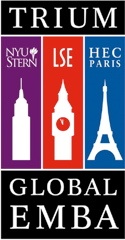CEM BOOTCAMP

Visit this page to stay up to date about pkward.com's CEM BOOTCAMP SERIES, held worldwide.
Click here for a brochure (PDF). To sign up for the class, click here.
DECEMBER 5, 2012
Location: Two Wisconsin Circle, at the Friendship Heights Metro, Suite 1010 (Rock Creek Strategic Marketing)
Time: 6pm - 9pm
RSVP: Click here.
Cost: $60 in advance, $70 at the door
Includes heavy refreshments. You won't need to have dinner prior to the session.
View Larger Map
CURRICULUM
1. Customers
Who are they? When should you start caring about them? Lifecyle & Stakeholders.
2. The role of emotion
What shapes an experience? Is this a science? How important is emotion?
3. Cognitive biases
Decision-making and memory are not logical. How does this help you?
4. Brands and Memory
Old branding. New branding. The context for learning, sharing, creating, and doing.
5. Customer experience: What is it? Where is it?
Three faces of a touchpoint. The failure of integrated strategic marketing.
6. The Five Forces of CEM
The framework.
7. It's an optimization problem: Why customer-centricity is wrong.
You thought customer-centricity was good? Stop wasting your money. Luxury, value-pricing, the brand, and return on investment.
8. People aren't just like you
Culture, personality types, defining how people respond in moments of truth.
9. Dealing with moments of truth
Where, when, how, measuring, getting better at it.
10. The touchpoint map
The geography.
11. Creating a strategy
The roadmap.
12. Trade-offs, early wins, and feedback
Implementation and financial considerations.
13. The customer doesn't know what they want: Voice of the Customer
Designing cars has everything to do with designing your business.
14. But you have to listen and measure: Closed loop process design.
Transactional and relationship measurements. Customer-driven innovation. Emotional language.
15. Discussion and case studies



